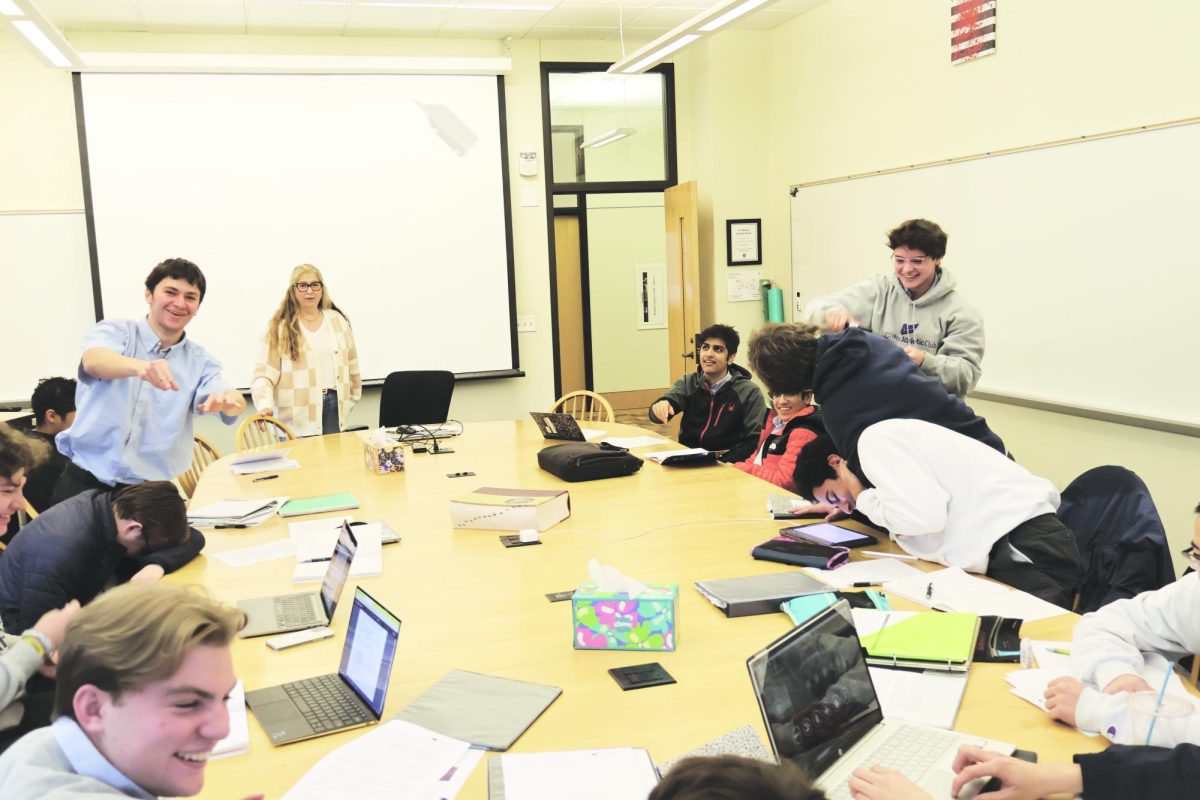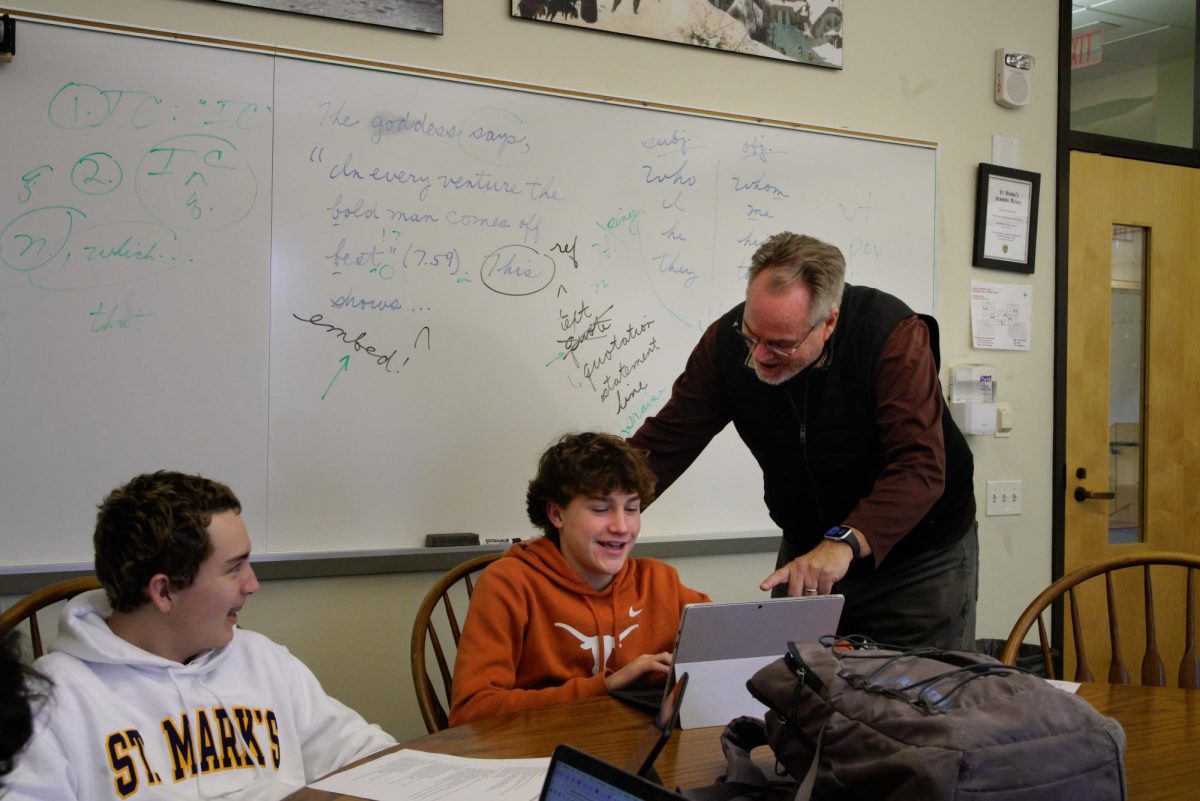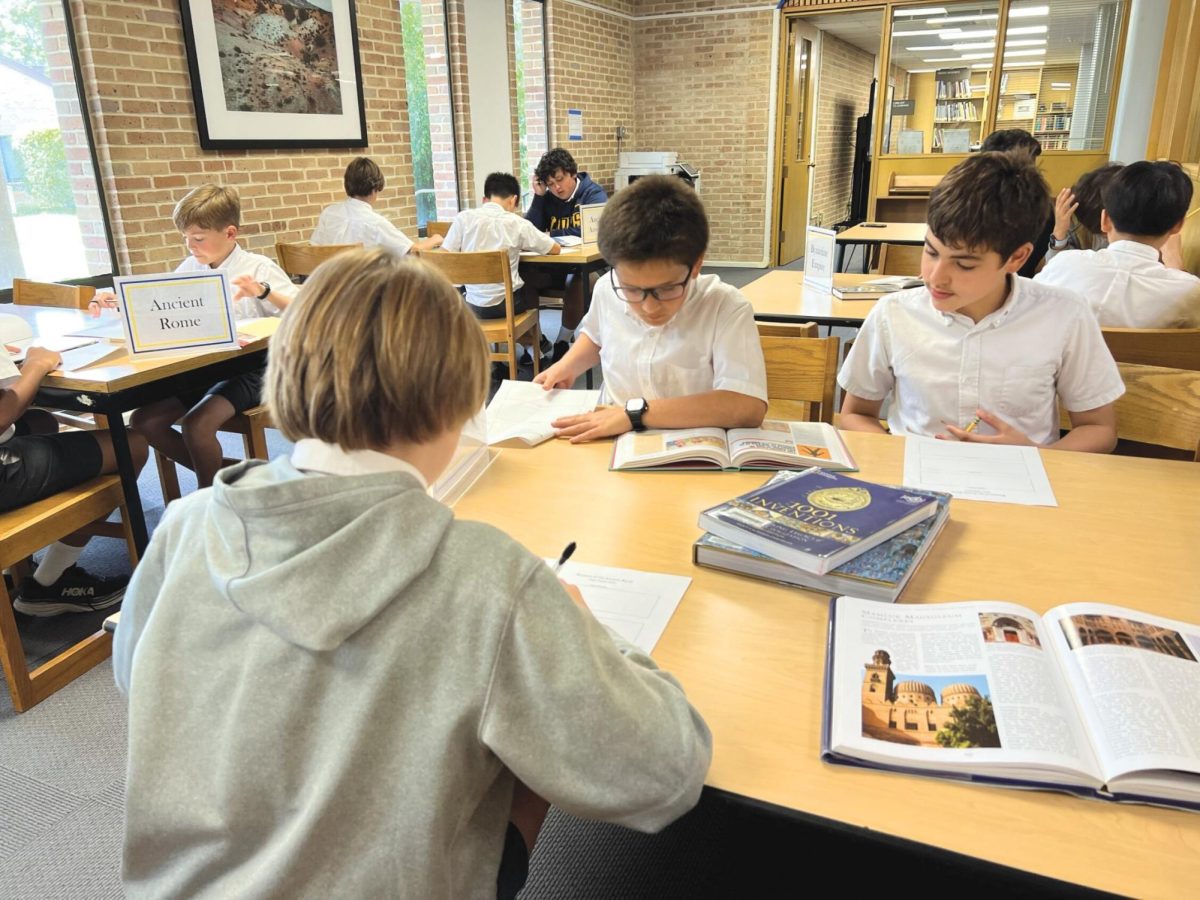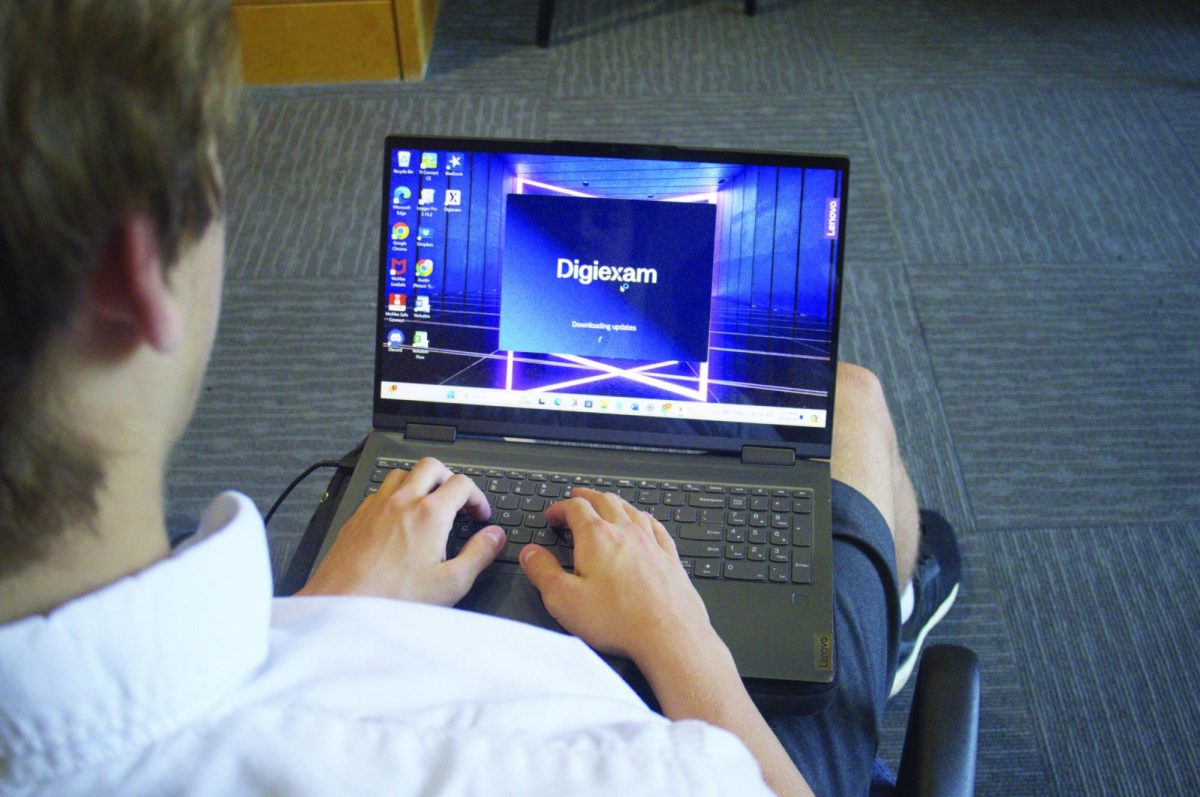Beheaded. That’s a word you would expect to hear when talking about Henry VIII or medieval crusades centuries ago.
But, just a few months ago, Benjamin Reese, a seventh grade Georgia teacher, was arrested on third degree charges for threatening to behead a student. The first questions that come to mind is ‘what did the student do?’ and ‘why might Reese have exhibited such an exaggerated reaction?’
However, it was not what was said that ignited his emotions, but just the tipping point of his stress.
In addition to often inadequate pay and benefits, many teachers are leaving the profession due to high levels of stress and often feeling underappreciated and disrespected. These stresses, in addition to outside events in their life, can often translate into the classroom, highlighting the hidden key to solving the teaching crisis: providing for teacher’s mental health.
“There’s a false judgment about teaching that has always bugged me where people might say ‘you get two months off’,” history instructor Michelle Santosuosso said. “However, the mental and emotional stress of teaching is maybe only similar to nurses and doctors.”
Though there’s many things that factor into the stresses of teachers, students can be a large source of it.
“I think that both students and teachers need to remember that we’re all human here, and we’ve all got this responsibility to treat each other with respect and empathy,” Upper School counselor Dr. Mary Bonsu said. “Remember that you don’t know everything that someone is going through.”
One of the most difficult things for a lot of people can be putting away their personal life at school. While students could have difficult home life, and there’s always going to be teachers that are going through a lot of personal stressors, there needs to be a mutual responsibility to put that away in the classroom.
“It’s prioritizing and knowing that you’re here to do a job and so you focus on your job,” Bonsu said. “You’re not a robot or anything like that, but at the end of the day, your job and your classroom requires you to be a certain way and to do things in a certain way. If you’re a student, you’ve got to take your notes and get through the lesson. If you’re a teacher, you have to be attentive — there’s all these expectations.”
It’s important to not take the joy out of teaching, as most teachers go into the profession because it’s what they love to do. This is only possible by honoring and respecting their time, energy and preparation and trusting that they have the best interests of students at heart.
“Sometimes, it goes to this ‘student versus teacher’ kind of dynamic where it’s them against us,” Bonsu said. “And at that point, we have lost sight of why we are here.”
In addition to the stresses that come purely from teaching, it may be difficult to develop a connection between the students on an emotional level.
“Let’s say I have three classes per day with 17 kids in each,” Santo said. “That’s a lot of personalities. And that’s just in the classroom. Now what about the three who stopped me at lunch and said, ‘hey, I need to meet with you.’ Sometimes it just gets to that point where I have nothing left to give because I’m mentally drained, and then I feel guilty because that’s part of who I am.”
With all these different personalities comes changes, as teachers have to adapt their lessons and teaching styles to the different learning styles.
“I think one thing that students forget is that the teacher is in charge of every student that is in the classroom, whereas the student is only in charge of himself,” drama instructor and Interim Head of Lower School Marion Glorioso-Kirby said. “As a teacher, we have a responsibility for educating the 12, 16, 18 boys that are in our rooms.”
The mood of teachers in the classroom can also greatly affect students, either negatively or positively.
“Every teacher has to send out confidence, positive energy and joy that the students can reflect back,” Bonsu said. “It’s a whole social interaction between the teachers and the students, not just an educational interaction.”
These interactions can extend beyond the classroom, even to a student or teacher’s home life, leaving a big impact on that individual’s mental health.
“I think the piece that surprised me the most,” Glorioso-Kirby said, “is that even when I left campus to go home at the end of the day, I continued to think about either something that students said or an interaction I had with a student, or maybe a lesson that didn’t land or didn’t come across as well as I had expected.”
Many efforts have already been put in place to help mental health in the community, as the Marksmen Wellness Center is open to both students and teachers alike.
“The school has so many great resources as far as our counseling office, and I can’t tell you how many times I’ve gone to Dr. Gabby and just said, ‘Oh my gosh, this is what’s happening, or I’m so worried about my own son, or I’m so worried about my own mother’,” Glorioso-Kirby said. “Like the things that are heavy on my heart, I can go and talk to any one of them. Having the right people and the right community around you is what is the saving grace for teachers and their mental health.”
For Glorioso-Kirby, balancing teaching and stepping in as the Head of Lower School provides a challenge. Tasked with two demanding duties, she has to find a way to split the little time she has.
“The student piece affects me the most, because I want to be able to give my all and my very best in everything that I do,” Glorioso-Kirby said. “Every teacher, every student, every conversation, I want it to have my full attention and my full focus. And I think when you’re pulled in so many different directions, you start to feel like you can’t really give your best to any one of those things because there’s only so much to go around.”
Bonsu believes that the mental health of teachers is often overlooked because they’re always supposed to be the ones taking care of others.
“Teachers are adults, so it’s just expected of them that they’ll continue giving themselves,” Bonsu said. “And so I think it can be overlooked by students, and it can also be overlooked by the people they report to as well, as everyone’s expected to just put their junk aside and get to work.”
Teachers navigate mental wellness
As teachers leave the profession at a rapidly increasing rate, there is a crucial need for supportive environments for educators as well as empathy and mutual respect between students and teachers.
February 2, 2024
English instructor Dr. GayMarie Vaughan struggles to control her emotions as she stands in front of her unruly class.
About the Contributors
Oliver Peck, Academics Editor
Joseph Sun, Focus Editor
Ben Adams, Digital Editor-In-Chief







